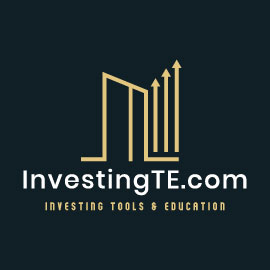Learning to Be Great with Numbers and Data in Real Estate Investing

Is math your strong suit?
Real estate is a formula and data based industry.
Without the math and data, you will get nowhere fast.
Whether that’s related to failure or just plain bad deals, numbers are a key component for all business transactions.
Today we will discuss the importance of numbers and how your proficiency with numbers support you being much more successful.
Let’s get started.
Serving The Customer

As a business owner, customers will expect you to be the expert at your craft. Being able to communicate property specific details, community data and “the numbers”, are all key components to your business.
When you can deliver these components, you are leaps and bounds beyond the norm.
Customers expect that when they have questions, you can deliver an answer along with the “why” behind it.
If you can do this, it puts them at ease and allows them to be comfortable with your ability to serve them. After-all, your expertise where they need you.
A home owner, that is looking to sell, may want to know what the closing process looks like, how much it will cost them and how long it will take. Many of these answers are process oriented and your comprehension of it will be tested. There are several “if, then” possibilities.
Aligning the following may be required:
- Comprehension of the purchase agreement, terms and conditions.
- Title process, contingencies and estimated closing time.
- What communication will look like between all parties.
- Expected or scheduled appointments along with correspondence.
- Contacts, owner preparation and general communication policy.
- Last, but certainly not least – value assessment and transactional costs. #NUMBERS
As you can see, your business acumen and knowledge will be tested.
Whether your customer is a home owner looking to go to market, or a seller looking for a cash deal off market, the customer need is the same.
Serving Yourself

There is a fine line between servicing the customer best and also taking a position that will be beneficial on behalf of yourself (or your business).
There is always a demand from the customer, and they will attempt to negotiate the best possible figures to trend in their favor.
There is nothing wrong with this, as you are doing the same. The art of negotiation is what this is all about.
The guide that you should always follow and understand, is where your base points are that will allow you to profit. Comprehension of the base points must be understood at all times during your dialog and planning.
This may sound simple if you are a commission based agent. But if you’re an investor, it isn’t that cut and dry.
- ARV, repairs and the projected time to complete the project, are all numbers to proficiently know.
Whether the customer tests your comprehension of this level of detail is another factor. However, whether you are directly tested or not, you will need to know your positioning to support your success.
In each deal, this information will be case-by-case specific.
Component Specific

There are aspects of the deal that require you to comprehend the numbers specific components of the deal. Many are entailed and apply as follows:
- After repair value (ARV)
- Down payment & closing costs
- Repair costs
- Labor vs material costs
- Transactional costs
- Holding costs during project operations
- Estimated time to completion for the project or stabilization period
- Financial/lender costs
- Selling costs
These are just a few examples of how the numbers will play a role in your daily operations. Your comprehension of each of these will allow you to perform better over time.
Evaluation Techniques

This brings us to the complexity and versatility of your knowledge based upon property type.
- A residential property will not involve the evaluation process as a commercial property.
Valuation processes are defined by the formula that fits the scenario and you best. Your ability to compute in these scenarios will support you arriving at your intended expectation.
Some investors use popular formulas that they understand best and others may create their own valuation techniques based upon experience.
- If you haven’t read our article on eligible valuation techniques and formulas, check out Real Estate Formulas 101. In this article we go over several formulas to align your expectations when evaluating an investment.
We also have calculator tools that will help investors, home buyers and realtors. Be sure to check them out.
- Home Buying Investment Calculator
- House Flipping Investment Calculator
- Rental Property Investment Calculator
- BRRRR Investment Calculator
- ARV Investment Calculator
- CapEx Investment Calculator
- Construction Investment Calculator
Choose amongst these if you want to simplify the evaluation process and a calculator would be helpful for you or your team.
There are many property types out there and your ability to understand the numbers is a huge component in your real estate career.
We know the complexity of hotels, motels, gas stations, laundromats, apartments, storage unit facilities, mobile home parks and single family houses, each require a different evaluation process, but they all have one thing in common.
You must know your numbers!
Thanks for joining us today faithful readers – future leaders! We appreciate you!
Love ya and continue to strive for growth.
Please comment your techniques or experience with best practices for knowing your numbers.
FREE Deal Analysis for Rental Property Calculator!
Our mission is to help others develop using our knowledge and services.
We cater to those looking to grow professionally.
Explore our tools, education and services.
